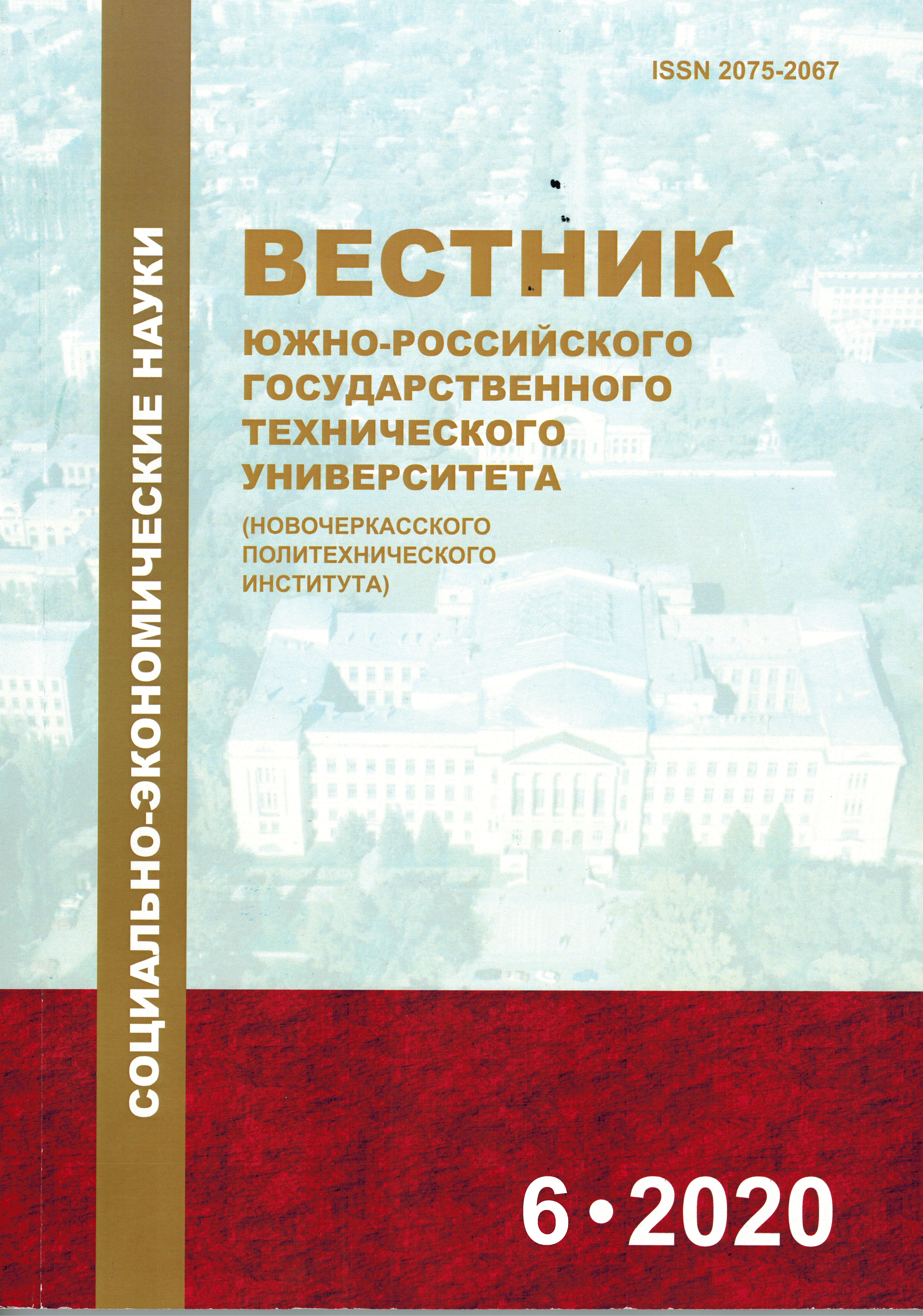НАЦИОНАЛЬНЫЙ БЫТ VS ИДЕЯ «ПЛАВИЛЬНОГО КОТЛА»: СО-ЦИАЛЬНО-ФИЛОСОФСКИЙ АСПЕКТ
DOI:
https://doi.org/10.17213/2075-2067-2020-6-234-244Keywords:
everyday life; culture; hermeneutics; verbatim; Slavophil philosophy; the idea of a «melting pot»; multiculturalism; national identityAbstract
The purpose of the study is to study the role of national life in the practical implementation of the idea of merging cultures, which in the twentieth century was designated by the meta-fora «melting pot».
Methodological base of research are hermeneutische theory (H.-G. Gadamer); the comparative-historical method and socio-cultural reconstruction, which allowed to reveal General regularities of influence of the national life in the process of merging cultures; ideas of the Slavophiles associated with the consideration of the impact of national life in the process of merging different religious bases, cultures, etc.
Research result. Reconstruction of the ideas of the Slavophiles and their followers gives you the opportunity to claim that life (melting pot) more durable than it gave rise to the culture that the semantic content of the forms of life are not legal by law and are otrajeny-eat the ideal world of culture, directly associated with the religious attitudes of certain people, and because life has a moral-religious content, which must comply not only the external behavior of the person and his existential condition. This gives the concept of «national life» a socio-philosophical dimension, not just an ethnographic one. National life unites people of the same nationality, but separating them in this Association becomes a distinctive barrier to people's openness to other cultures, without which it is impossible to successfully implement the process of merging cultures. This is well illustrated by the example of existing national and ethnic enclaves in Europe and America. The far-sighted warning of the Slavophils that external borrowing of everyday life is not identical with cultural fusion has also proved true in the history of Russian culture, and its relevance has not lost its force in today's world.
The research prospects consist in continuing theoretical and methodological research of the problem of the influence of national life on the mixing of cultures on the material of modern processes of interaction of cultures.
References
Андропов Ю. В. Шестьдесят лет СССР. – М.: Изд-во политической литературы. – 1982. – 64 с.
Брук С. И., Козлов В. И. Этнографическая наука и перепись населе-ния 1970 г. // Советская этнография. – 1970. – №6. – С. 3-20.
Вуд Г. Идея Америки. Размышления о рождении США. – М.: Весь Мир. – 2016. – 432 с.
Геллнер Э. Национализм возвращается // Новая и новейшая история. – 1989. – №5. – С. 55-62.
Гиренок Ф. Патология русского ума (Картография дословности). – М.: Аграф, 1998. – 414 с.
Горький М. О музыке толстых [Электронный ресурс]. – Режим до-ступа: https://diletant.media/articles/28681833/ (Дата обращения: 10.11.2020).
Достоевский Ф. М. Политическое завещание. Сборник статей за 1861-1881. – М.: Алгоритм, Эксмо, 2006. – 480 с.
Иоанн Мейендорф. Византийское богословие. Исторические направления и вероучение. – М.: Когелет, 2001. – 431 с.
Киреевский И. В. Разум на пути к истине. – М.: Правило веры, 2002. – 661 с.
Матяш Т. П., Матяш Д. В., Несмеянов Е. Е. Объяснение, понима-ние, интерпретация. Учебное пособие. – Ростов-на-Дону: Издательский центр ДГТУ, 2016. – 102 с.
Ницше Ф. Человеческое, слишком человеческое. Книга для свободных умов // Ницше Ф. Соч. в двух томах. – Т. 1. – М.: Мысль. 1990. – 831 с.
Петр Авен vs Анатолий Чубайс: Родина или свобода? [Электронный ресурс]. – Режим доступа: https://pyckue-cka3ku.livejournal.com/3249952.html; https://snob-ru.turbopages.org/snob.ru/s/entry/154564/ (Дата обращения: 9.11.2020).
Согрин В. В. Энциклопедия истории США. – М.: Весь Мир, 2018. – 480 с.
Св. Максим Исповедник. Вторая сотница о любви // Добротолю-бие. – М.: АНО «Развитие духовности, культуры и науки», 2004. – Т. 3. – 557 с.
Филиппенко А. А. Иммиграционная политика США. Очерки исто-рии [Электронный ресурс]. – М.: Весь Мир, 2018. – 232 с. – Режим доступа: https://ru.wikipedia.org/wiki/%D0%A1%D0%BB%D1%83%D0%B6%D0%B5%D0%B1%D0%BD%D0%B0%D1%8F:%D0%98%D1%81%D1%82%D0%BE%D1%87%D0%BD%D0%B8%D0%BA%D0%B8_%D0%BA%D0%BD%D0%B8%D0%B3/9785777707536.
Флоренский П. А. Философия культа. – М.: Мысль, 2004. – 683 с.
Флоровский Г., прот. Из прошлого русской мысли. – М.: АГРАФ, 1998. – 431 с.
Хомяков А. С. Работы по богословию. – М.: Медиум, журнал «Вопросы философии», 1994. – 476 с.
Хомяков Д. А. Православие, Самодержавие. Народность. – М.: Институт русской цивилизации, 2011. – 576 с.
Чертина З. С. Плавильный котел. Парадигмы этнического развития США. – М.: Институт всеобщей истории РАН, 2000. – 163 с.
Эрн В. Ф. Сочинения. – М.: Правда, 1991. – 575 с.
Юдина Т. Н. Миграция: словарь основных терминов. – М.: Изд-во РГСУ; Академический Проект, 2007. – 472 с.


